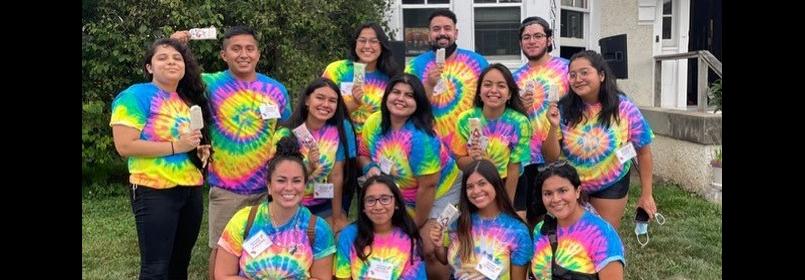
Visit Open Illinois for more information and resources.
You can also anonymously reach out via email.
Scholarships
Updated August 2021.
- Immigrants Rising 2021 Undergraduate Scholarships (pdf)
- Immigrants Rising 2021 Graduate Scholarships (pdf)
- Immigrants Rising 2021 Undergraduate Fellowships (pdf)
- My undocumented life 2021 College Scholarships
- Scholarships A-Z All Year Round Scholarships
- USHLI 2021 Scholarship
Application Deadline: November 30th, 2021.
Organizations
Illinois Coalition Assisting Undocumented Students Education (I-CAUSE)
- Email: icauseuiuc@gmail.com
Deferred Action for Childhood Arrivals (DACA) Executive Order (June 2012)
Department of Homeland Security Deferred Action for Childhood Arrivals FAQ
Open Illinois: Resources for Undocumented and DACA Students
Dear students, community, & colleagues,
As President Killeen said “The University of Illinois System has earned a place as a global leader in education and discovery by opening our doors wide to the most talented students – and that includes our undocumented students.” We are happy to announce that the new Open Illinois website is live. This resource website provides undocumented and DACA students information and tools that will ensure their success at the University of Illinois at Urbana Champaign. It is meant to highlight resources, services, and provide answers to both incoming and current students.
Sincerely,
La Casa Cultural Latina
US Supreme Court Ruling on DACA
June 18, 2020
La Casa Cultural Latina stands with our Deferred Action for Childhood Arrivals (DACA) and undocumented students, faculty, staff, and all those who are impacted by the recent U.S. Supreme Court decision that will permit DACA recipients to continue their renewals and have work authorization and temporary protection from deportation. The Supreme Court decision is consistent with La Casa Cultural Latina's commitment to provide an accessible education to all students. Supporting DACA and undocumented students is in direct accordance with the University of Illinois' vision and goals to foster diversity on campus. La Casa Cultural Latina strives to raise awareness across campus of the issues facing DACA and undocumented students so that the University of Illinois becomes an inclusive environment where students can gain the access, support, and guidance they need to prepare for civic engagement and productive careers upon graduation.
As the MassMail sent by Chancellor Jones earlier today states:
"In the past few months, we have become acutely aware of how interconnected each of us is, and of the renewed imperative that actions align with what we stand for. We must act in ways that protect the most marginalized among us, dismantle systems that exclude and oppress, and as a university we must fight fiercely to protect the dreams and humanity of each and every one of us. The success of our university rests firmly on the principle of inviting the best and brightest into our community and supporting their capacity to thrive. The skills, imagination, and determination that DACA recipients bring to our community represents the best of who we are as a university."
We will continue to work with our peers in the state of Illinois as well as national organizations to determine our next steps as we continue to advocate for DACA and undocumented students. For updates on immigration policies and other resources for undocumented students on campus, please visit Open Illinois.
If you are in need of support during this time, please reach out to La Casa Staff (lacasa@illinois.edu).
-La Casa Cultural Latina